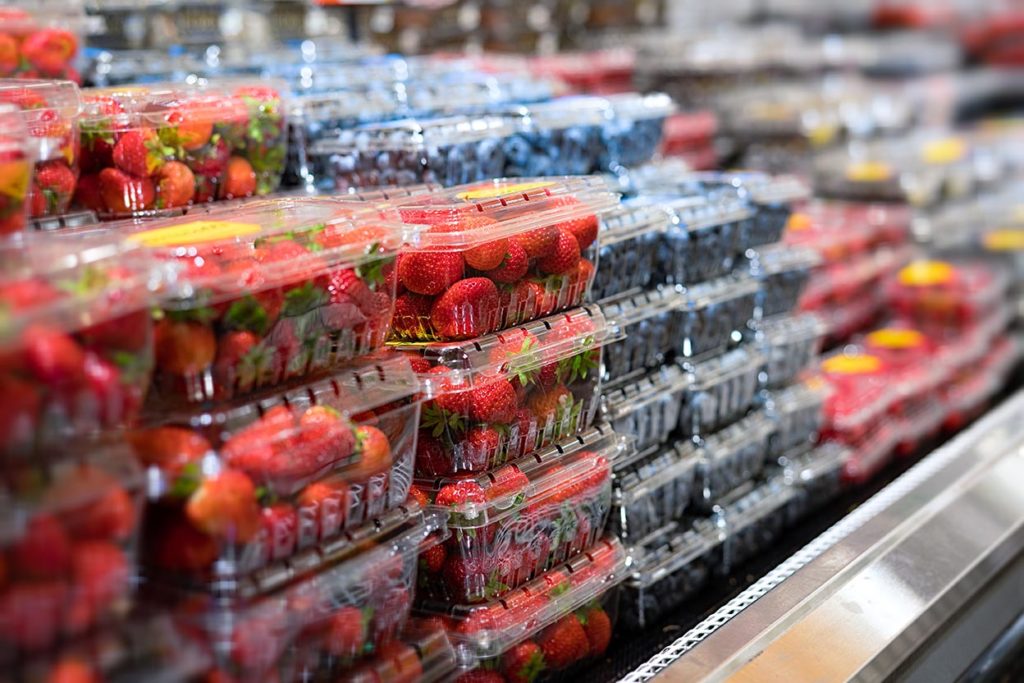By Clint Thompson
The U.S. trade representative (USTR) promised specialty crop producers help but not an investigation into imports of Mexican produce. For one industry leader, that is at least an acknowledgement that Southeast fruit and vegetable producers are suffering from unfair trade practices.

“The fact that they’ve agreed to set up a stakeholder committee is an acknowledgment that they are aware there is a problem, first and foremost,” says Chris Butts, executive vice president of the Georgia Fruit and Vegetable Growers Association (GFVGA).

A decision announced by the USTR to pursue avenues in assisting the Southeast seasonal produce industry, in conjunction with the U.S. Department of Agriculture (USDA), acknowledged that help is needed for specialty crop producers against the rise of imports.
“It is critically important for them to recognize and acknowledge the fact of what we’ve been saying for so long. The creation of the committee gives credence to all of the data and all of the arguments that we, Florida and others have been presenting on this for years,” Butts says.
Southeast produce suffering under the intense weight of Mexican imports is not a new concept but one that has only intensified over the past decade. Members of Florida’s congressional delegation submitted a Section 301 petition to the USTR in September. The statute required the office of the USTR to determine if it would move forward with an investigation. It declined.
But the statute also included the establishment of a private-sector advisory panel as a response to export targeting, a scheme the Florida delegation accused the government of Mexico of fostering. Growers are yearning for any and all federal assistance.
“For so many years, if you had gone to a southeastern producer and said, ‘We may be able to establish a program that can financially support you when times are bad,’ our growers didn’t want to be in those types of programs. But they’ve reached a point where they don’t have a choice. We owe it to them to pursue every option that we can,” Butts says. “The formation of a stakeholder committee is fantastic if we can work toward real-world policies that the USDA and USTR can put into place and provide some relief. That would be great. But at the same time, we are going to pursue every other option that we’ve got.”
Like GFVGA, the Florida Fruit & Vegetable Association (FFVA) appreciated the acknowledgement. It released a statement following the USTR’s response, that included the following comments:
“The FFVA thanks USTR for its commitment to work with the Florida industry and petitioning Florida congressional offices to address the unfair Mexican trade practices raised in the Section 301 petition, including the Mexican government’s decades-long export targeting scheme for seasonal and perishable products.
“Although the administration for now is not formally beginning a Section 301 investigation given the limited 45-day review period, it has made clear it recognizes the urgent need for immediate, effective and enforceable solutions, which we believe includes all trade-relief options. We thank the administration for moving forward promptly with certain action steps related to Mexico’s export targeting practices and for engaging in other efforts to deliver effective trade relief.
“We look forward to working closely with the USTR, others in the administration and the bipartisan Florida delegation on near-term solutions that address the Section 301 trade concerns and stem the onslaught of unfair seasonal and perishable produce from Mexico.”
HISTORY OF UNFAIR TRADE
The Florida Department of Agriculture and Consumer Services (FDACS) conducted a study on two dozen commodities from 2000 to 2020. The research showed declines in market share for 20 U.S. commodities, while 13 Mexican commodities experienced market share increases of more than 100%.
FDACS also proved that Florida growers are losing between 10% and 20% in sales every year, or between $1.3 billion and $2.6 billion annually. This is directly attributed to Mexico’s export expansion following the turn of the century. It amounts to a negative economic impact of nearly $4 billion.
Georgia farmers are feeling similar impacts, specifically with cucumbers, squash, bell peppers and blueberries. These commodities have been monitored or undergone an investigation by the U.S. International Trade Commission in the past couple of years.
“All document the huge surge in imports over the last 15 to 20 years with an acceleration of those imports in the last five to 10 years. The USDA already has the data on the commodities most being impacted by imports,” Butts says.
POTENTIAL SOLUTION
Butts and the GFVGA favor the Ruiz-Scott bill, the American Seasonal and Perishable Crop Support Act, as a potential solution. It is a program established by Rep. Raul Ruiz (D-CA) and Rep. Austin Scott (R-GA). Its concept is based on price-loss coverage, which would be triggered by lower prices due to rising imports.
The bill would help level the playing field amid the rise of cheaper, foreign-subsidized imports. Butts is hopeful the program will be included in the next farm bill.
“There are factors involved that give importers advantages to bring things in here at a super low price. Most of that is due to labor. Ruiz-Scott offers the most direct route to address just that issue without fear of retaliatory tariffs or other trade actions from other countries,” Butts says.









